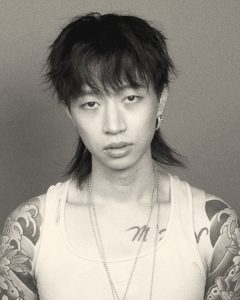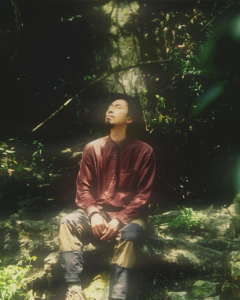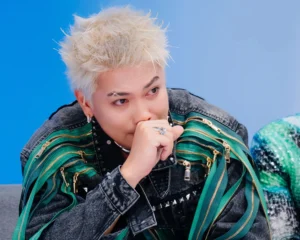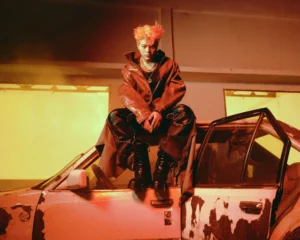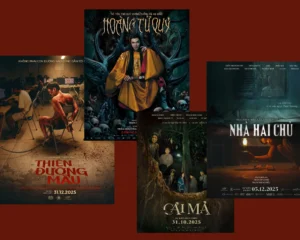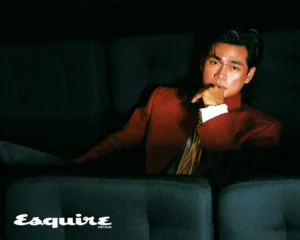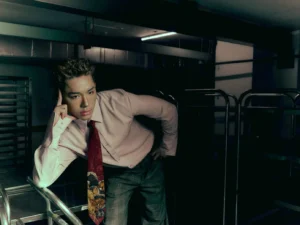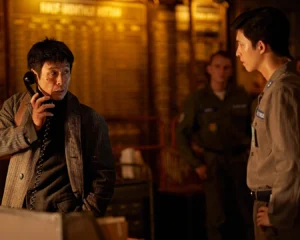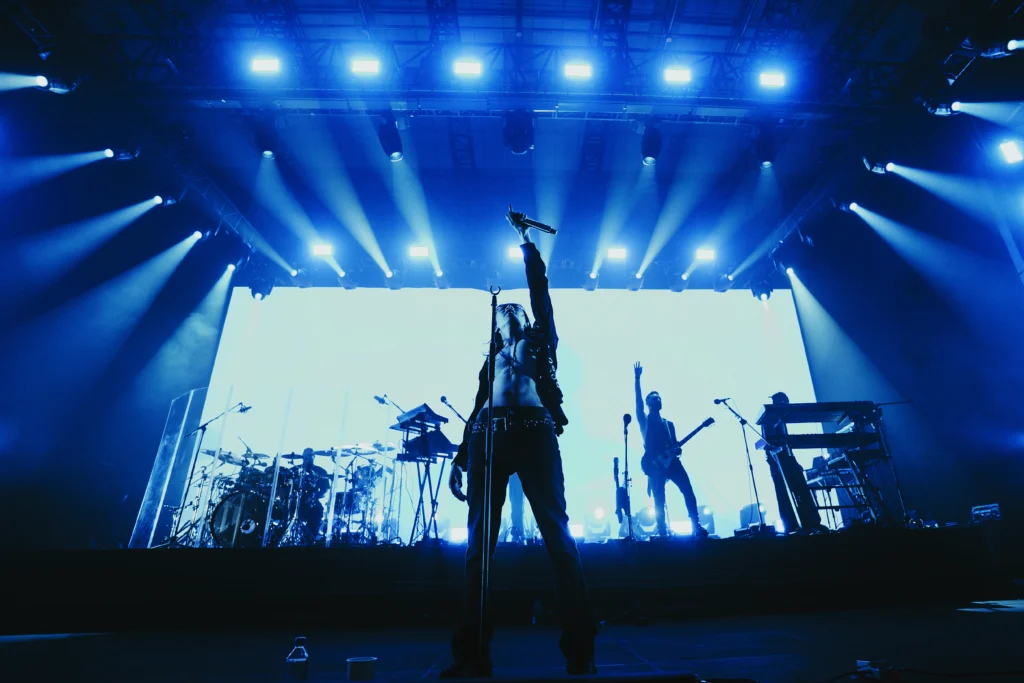
“I just got back from the road a couple of days ago, slept in my own bed, had a fat nine, ten hours of sleep,” Keshi says, calling from his newly furnished home studio in Houston. “It’s this funny thing when you’re on tour—you have multiple legs of a tour, so you do Europe, Asia, America. When you finish one leg, you’re a little sad, but you know there’s another after.”
Keshi, whose real name is Casey Luong, describes life on tour as a “weird vortex where time stops and you live the same day every single day, but for everybody else time’s moving forward.” At the final stop in Vancouver, the Texas-born, Vietnamese American singer recalls sitting in the green room after the show, champagne bottles popping around him, wanting to slow everything down. “I just remember sitting on my hands, watching everybody, and thinking if I stopped moving, maybe time would slow down a little bit. And I wanted so badly for it to just keep going.”
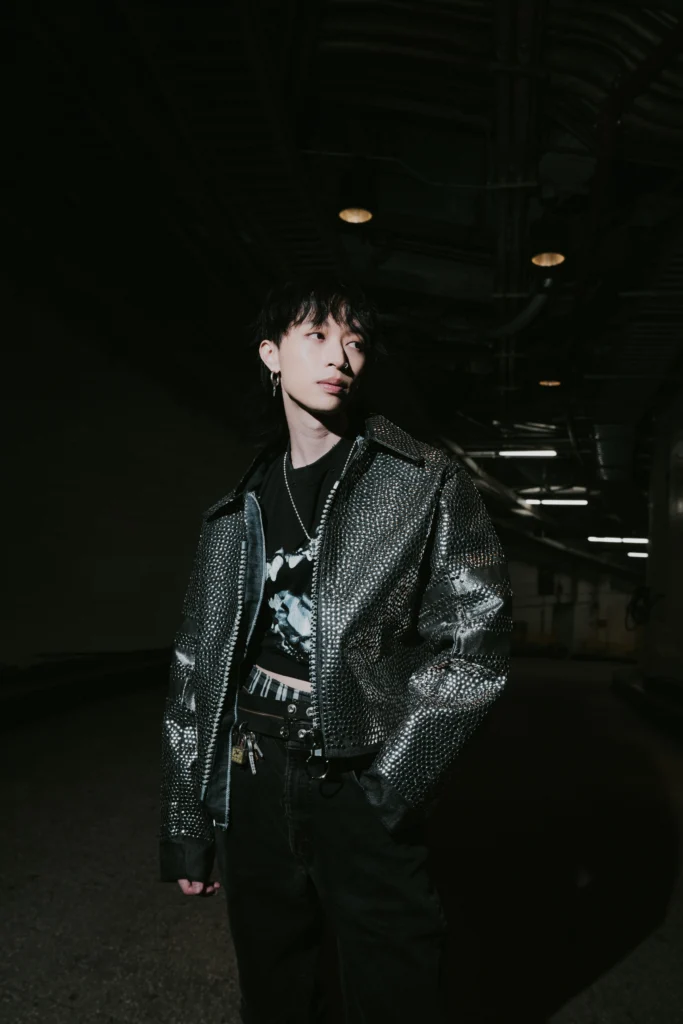
This was Keshi’s third headlining world tour—showcasing his 2024 album Requiem—a milestone he admits still feels surreal at the age of 30. “Every tour is different. I’ve kind of stepped up the stages, going from clubs to theaters to amphitheaters to arenas. And it’s not just in one place; that’s all around the world. In China, I went straight to arenas, which were really, really nuts.” He laughs at the old touring adage about trade-offs:
You can either have a really good show, you can make a lot of money, or you can be comfortable. You have to choose two of the three. You can’t have all three. And this is kind of the first tour where I got to have all three. That just doesn’t happen.
Comfort came hard-earned. “In the beginning, I drove the car and I loaded up my own equipment. I broke it all down after” he recalls. “And now it’s to the point where right after I finish a show, there’s a car waiting for me to just rush me out. And that’s an unbelievable thing.”
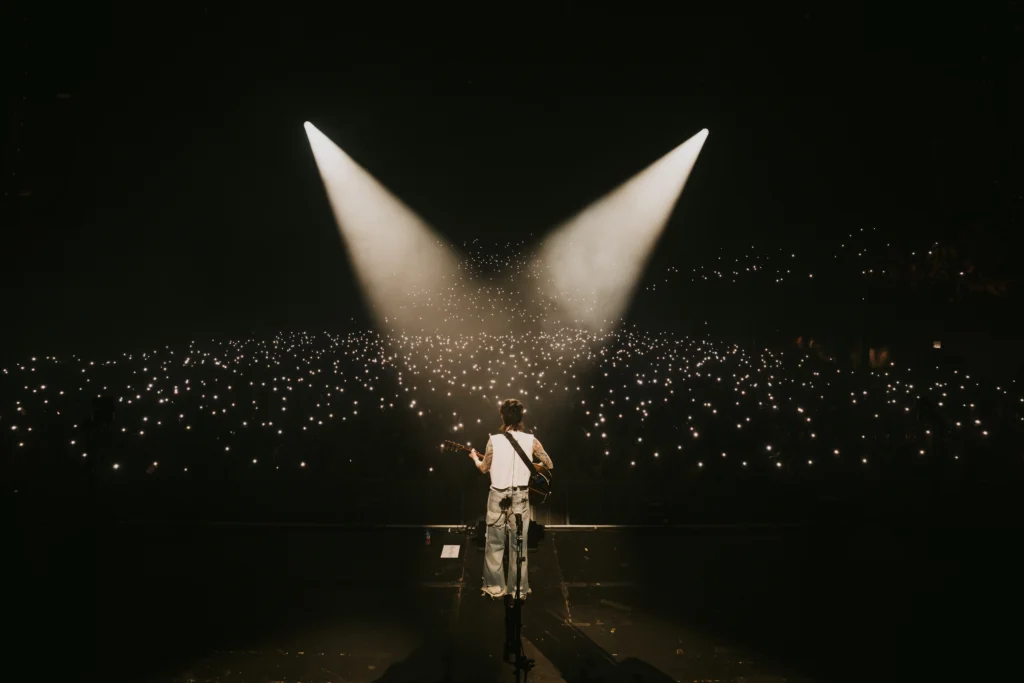
A few moments stood out more than others: San Francisco marked his biggest U.S. crowd, but it was Tokyo that really blew his mind. Two back-to-back sold-out nights at PIA Arena, each holding 12,000 fans—“that’s 24,000 people if nobody came twice, which is nuts,” he says. And then there was New York, where he headlined the iconic Madison Square Garden.
“It’s just so hard to articulate my feelings and emotions because somewhere along the year of waiting to play that show, I forgot that I was playing at the Garden,” he admits. A bellman at his hotel brought the moment back into focus. “He asked where I was playing and I told him. The day before the show, I came back to a bottle of champagne and a handwritten card that said, ‘Casey, the Garden is not just another gig. It’s a testament to all the years of hard work that you’ve put in.’” Keshi still has the card.
Sonically, Requiem represents a bold evolution for Keshi, moving beyond the intimate lo-fi R&B of his earlier work into a more expansive and genre-bending sound. The album blends luminous alternative pop, dance-ready beats, contemplative indie vibes, and even country-tinged moments. It carries a darker, existential undertone, navigating themes like faith, loss, and purpose—inviting listeners into deeply personal reflections on life, love, and mortality.
I took a lot of risks in my creative process that I probably wouldn’t have been comfortable with earlier in my career.
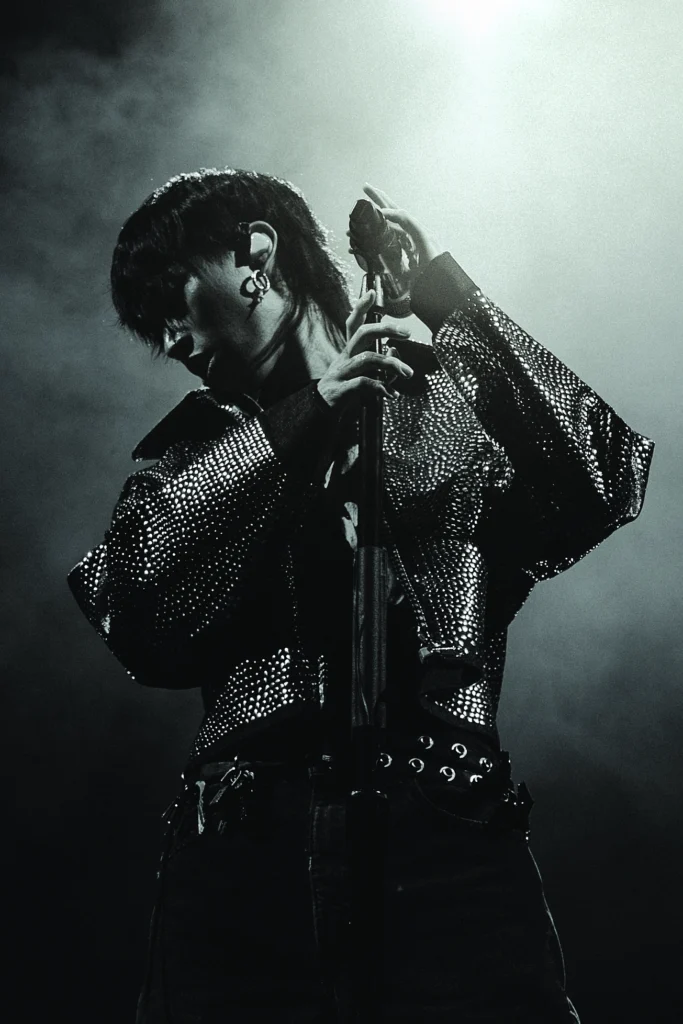
“It’s an album where I feel like I took a lot of risks in my creative process that I probably wouldn’t have been comfortable with earlier in my career,” he says. “It was the first time I had ever let so many people into my process where I took more of a director’s seat. It forced me to stop making music with my eyes and my hands and to really use my ears.”
One song in particular tested him. “‘Soft Spot’ is a really, really stark example of a song that just was not in my instincts at all. My initial reaction was to shelve it. The song’s just so saccharine compared to some of my other repertoire, but I had to really come around and accept that sometimes as an artist, you’re just supposed to be a conduit for making great art. And I’m proud of my humility in accepting that song. I love how the crowd reacts to ‘Soft Spot’ when I play it live.”

He also learned to let go of perfectionism. “I’ve never been good in writing sessions. I’m very insular about my process. Requiem was the album where I learned how to play with others in a really great way. By being off a laptop, it really forced me to stop being a pussy and get on the mic. I learned to have some bravery about saying the wrong thing or singing the wrong thing.”
These days, Houston remains Keshi’s home base. Though the city may not have shaped his sound—“everything I consumed felt pretty global,” he says—it remains his anchor. That sense of home runs through his song “Texas”.
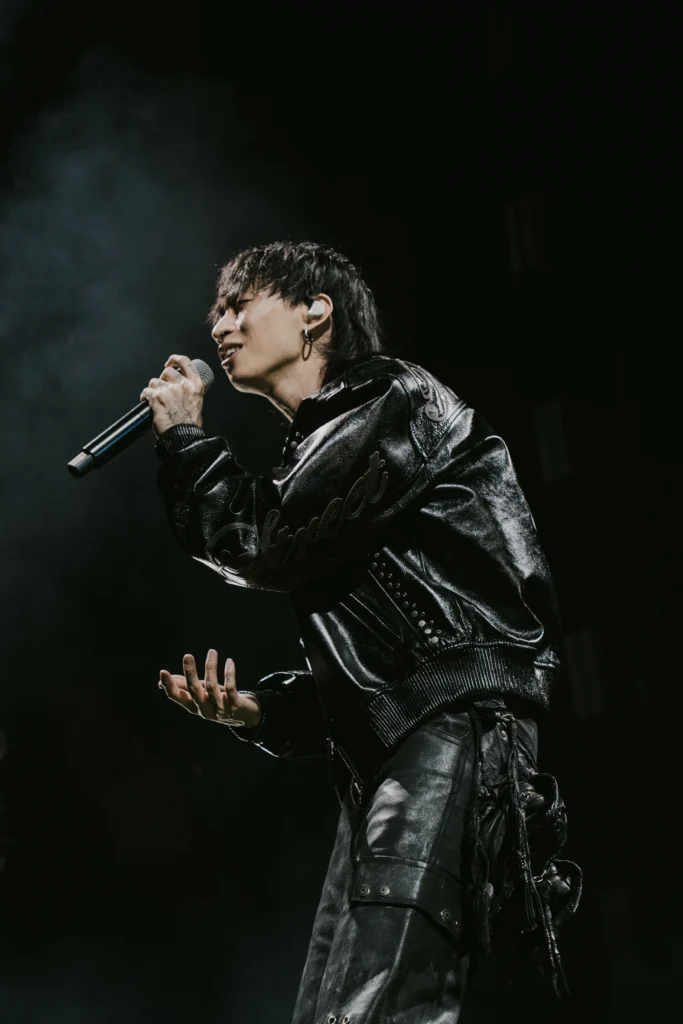
“The song is half about the state,” he explains. “I’m talking about home and that’s the setting. But the subject is about how time’s moving fast and how I’ve sort of changed throughout these different crucial parts of my life. At 17, I felt like I had infinite time. At 23, I felt like I had to leave. And now I feel like there’s a sort of sanctity to home that I should not let go of.”
And then there was another home: Vietnam. “It was so magical because I haven’t been back since I was 12 or 13,” he says. “I wrangled with my identity in some subconscious ways, which I think is a really universal American experience as a minority.”
He pauses, lost in his recollection. “But when you go to Vietnam, you realize it’s been here all along. My culture, my heritage, my roots are here; it exists, it’s real. And I was always nervous about whether Vietnam was going to accept me because I don’t speak the language. But I went and played that show, and I heard roaring from the crowd, ‘Welcome home.’ “
Everyone kept saying, We’re so proud to have you because you’re Vietnamese. But it’s the other way around. I’m so immensely proud to be Vietnamese.

After three world tours, multiple milestones, and a platinum album, Keshi says he’s going to take a little break before diving back into music. He’s more pressure-free than ever before. Even so, he slipped in a surprise near the end of the tour—dropping the shimmering, Porter Robinson–assisted single “WANTCHU,” a glimpse of where his sound may be headed next.
“I’ve sort of done everything I ever wanted to do—I get to make music for a living. I played the Garden. That’s all I ever asked for,” he says. “Now I truly feel like there is no pressure for me anymore to do anything that anybody expects me to do. The first thing that I need to always do is to win myself, and that’s all I care about. That’s how I’m going to recapture the joy of making music.”


